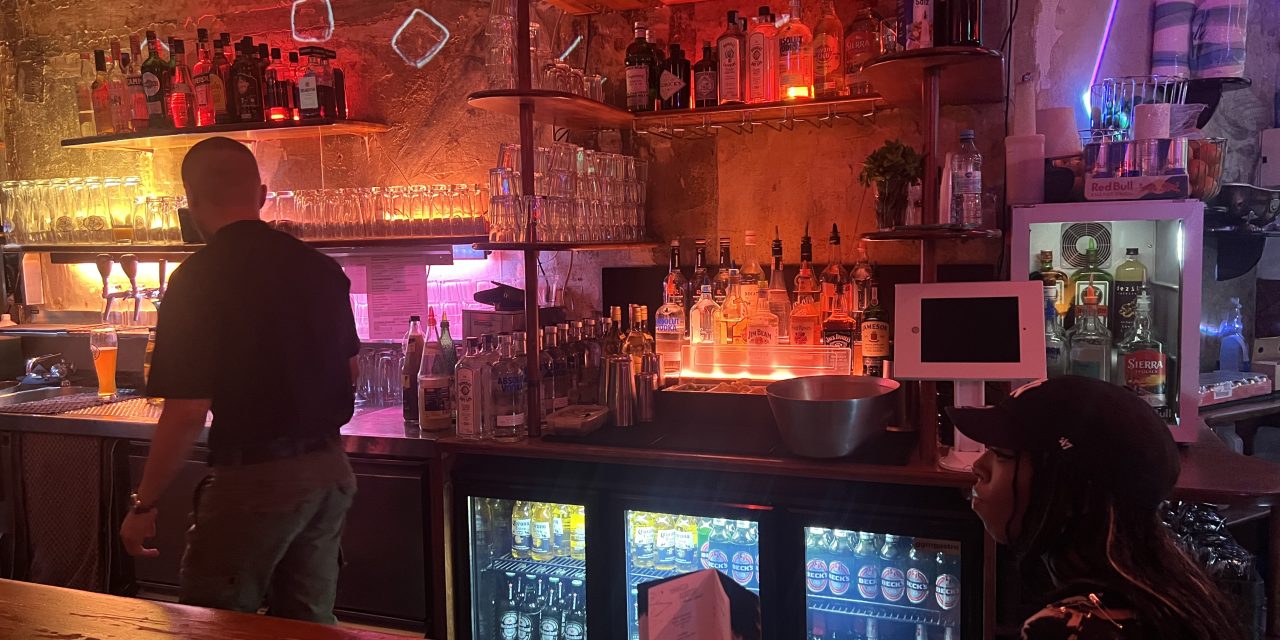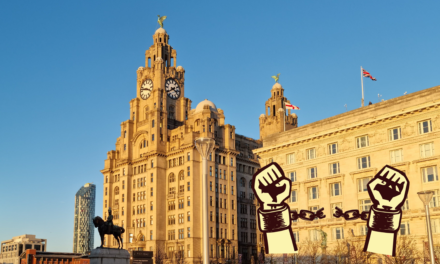On a quiet evening in Berlin’s Prenzlauer Berg, the notes of classical music drift through the air coming from Becketts Kopf, a secret bar. Inside, patrons sit closely to eachother clearly absorbed in their quiet conversations or solitude. The atmosphere could be described as calm and sophisticated, which is a stark contrast to the bustling nightlife just a couple blocks down away. This bar, with its historical roots and quiet ambiance, showcases Berlin’s evolving cultural landscape amidst the sweeping tide of gentrification.
Berlin’s cultural landscape has been long celebrated for its mix of history, creativity, and extremely vibrant nightlife. However, in recent years, the city has expierenced many changes due to gentrification. This transformation not only changed the socio- economic fabric of the city but it also reshaped the culture in bars located in Berlin, which has been a cornerstone of Berlin’s identity for many years.
The influx of new, wealthier residents, attracted by the historical charm, has led to rising property prices and living costs over the years. This can cause long-time residents and businesses to be displaced, leading to a loss of historical and cultural continuity. Affecting not only the business owners and residents, but also visitors passing through.
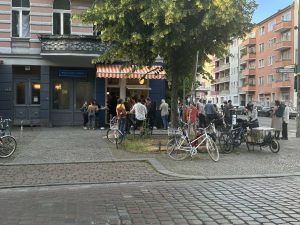
Bars in Berlin have historically been more than just places to drink; They are places where social boundaries can dissolve and creativity can flourish. Esteblishmenta like Becketts Kopf, owned by Oliver Ebert, exemplifies this. “ we try to create a vibe so you can feel comfortable to step out of your usual life” Ebert says, “and to find a space where you can do whatever you want, a place where you can be with other people by yourself.” Bar culture in Berlin does not represent merely a place to go to get a pint, it represents a place for people to connect.
The effects of gentrification are evident in the changing clientele and ambiance of many bars. As property prices continue to soar, many traditional bars are forced to close or adapt to new economic realities. This shift in reality often leads to more upscale, expensive , and commercially viable operations that usually cater to the wealthier, new residents.
According to a study on the German housing market, house prices increased by 68% between 2005 and 2020, while rental prices increased by 48%. Consequently the average price-rent ratio increased by almost 40%. This surge in housing costs significantly impacts the type of establismnents that can survive in the gentrified areas.
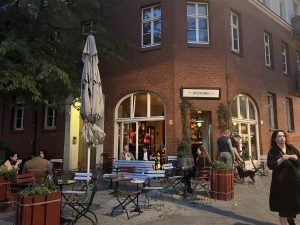
Ebert notes that Becketts Kopf is and will continue to be an original place. By working with distilleries and avoiding commercial brands he maintains a connection with local culture and artisanship, which is becoming increasingly rare as gentrification encourages establishments to be more uniform and comercialized.
Ebert also shares insight into how bar culture in Berlin has evolved over the years, shaped by both historical context and modern trends. After world war II, Berlin was filled with free spaces where people would open clubs, bars, or restaurants outside government control. This freedom is what started Berlin’s famous nightlife scene. “In Berlin, historically after the war, there were a lot of free rooms or places where it was not clear who is that owner or what will be going on there,” Ebert recounts. “Some people just took these places and opened up a club or a bar or a restaurant or whatever outside the government’s control.”
This historical context of informal development of establishments, contributed to Berlin’s reputation for being a haven for alternative lifestyles and creative expression. However as the years go on and gentrification becomes more prevalent, these free spaces are becoming fewer, and the bar scene is increasingly regulated and commercialized.
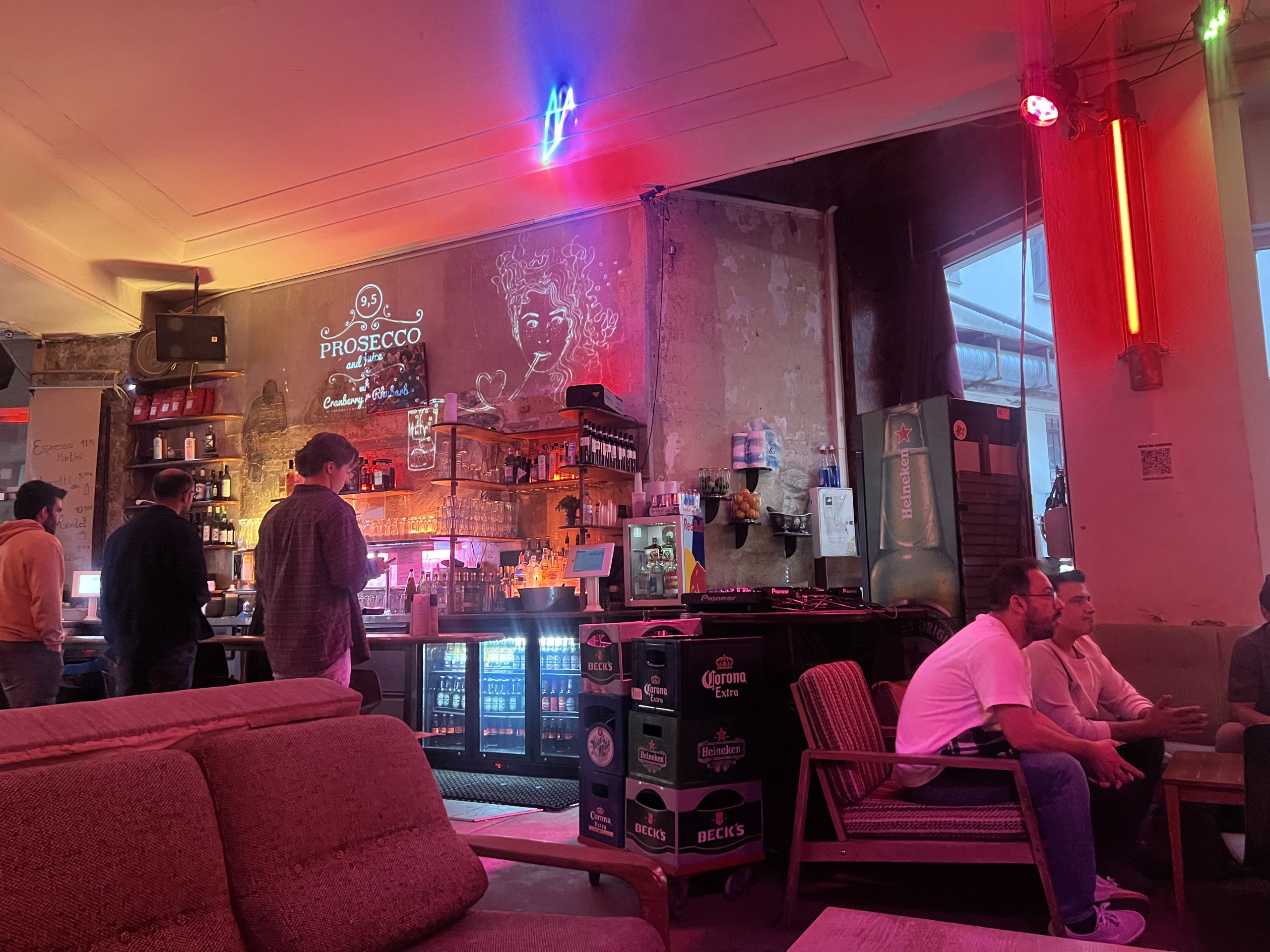
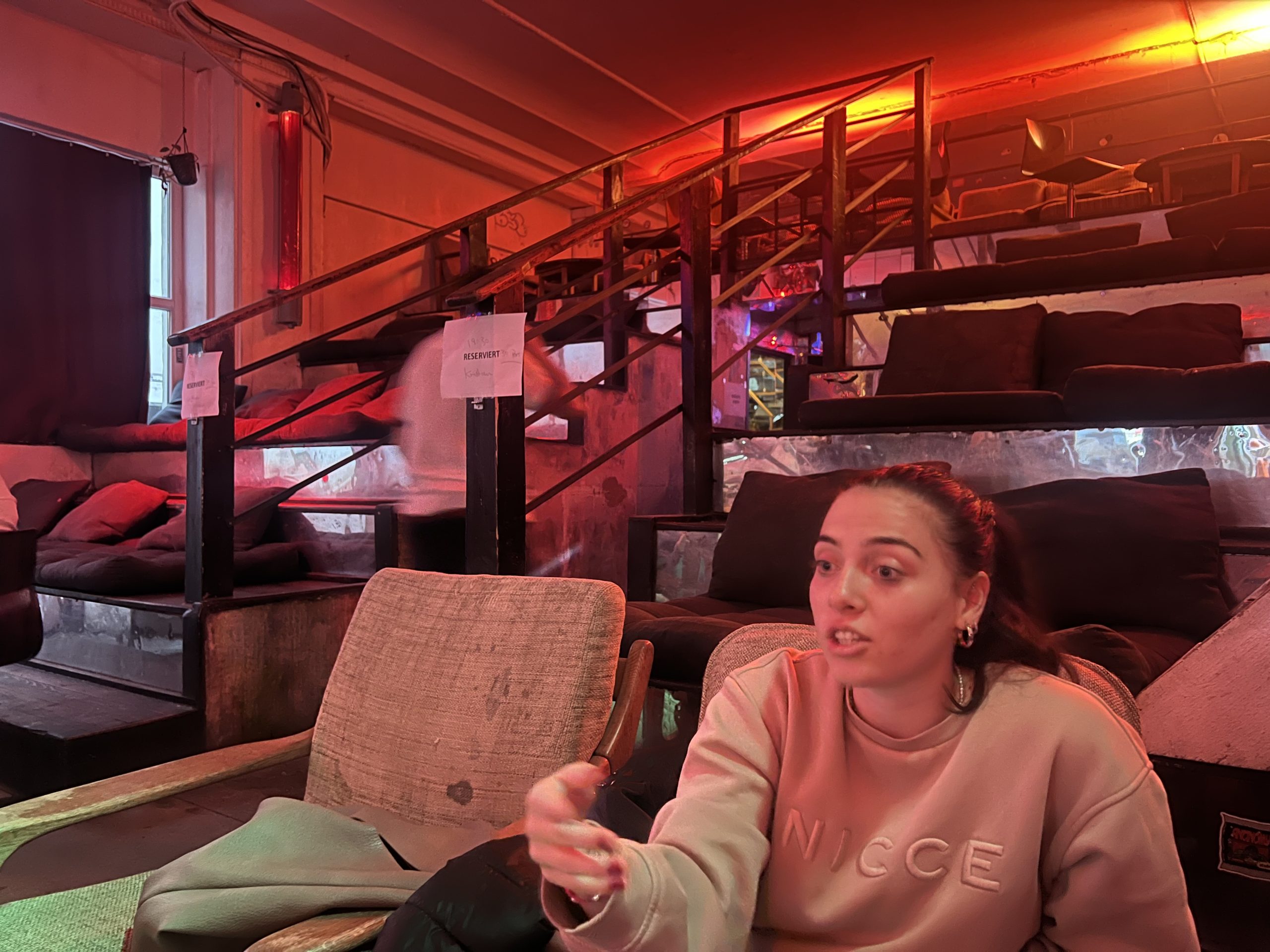
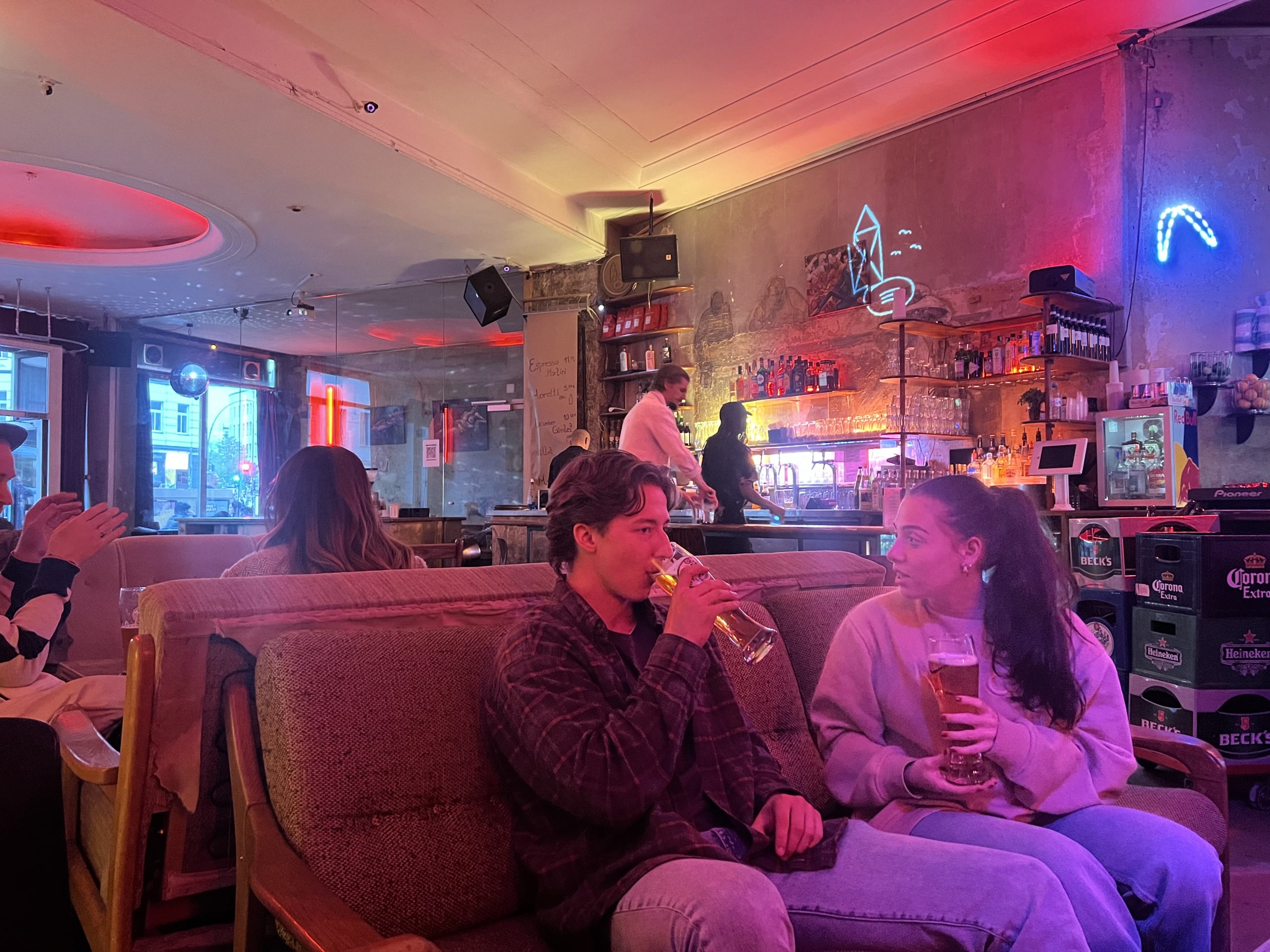
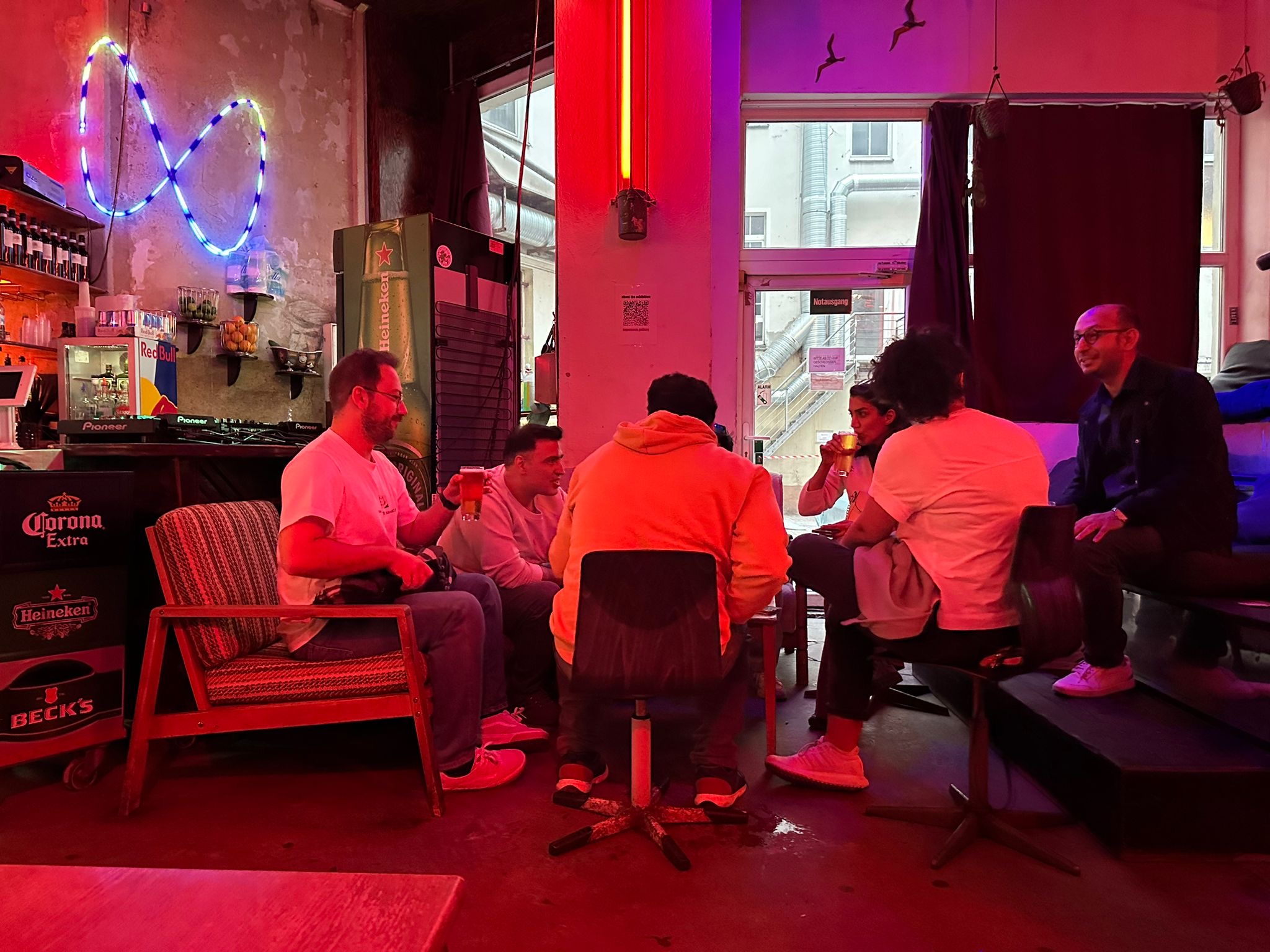
Adding to the exclusivity of Becketts Kopf is its unique entry system. “ We have a doorbell to welcome guests at the entrance, which was also quite common in Berlin after the war.” Ebert explains. This element of secrecy and need to be let in only hightens the allure of the bar which also serves as a way to preserve a peace of Berlin’s history. By keeping this traditional approach, Becketts Kopf resists the effects of gentrification that seems to bring homogenization. This simple act could be seen as a deliberate effort to keep this bar’s original spirit alive, catering specifically to those who can appreciate it with all that it comes with and all that it means.
Gentrification in Berlin is reshaping the city’s bar culture, which in turn is reflecting more broad economic shifts. Although the dynamics of gentrification in Berlin’s neighborhoods vary, the overarching impact is very clear. Bars like Becketts Kopf show the true challenges and opportunities of keeping cultural identity amidst rapid change. As Berlin continues to change and evolve, its bars will remain key cultural hubs, which will continue to navigate a delicate balance between tradition and modernity.
